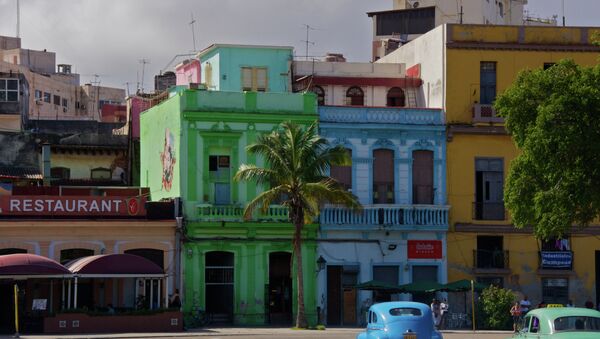A U.S. embargo of trade with Cuba still remains in effect despite some warmer exchanges that have thawed at least a thin layer of the ice recently. President Barack Obama has called that policy outdated.
“The notion that the same policies that we put in place in 1961 would somehow still be as effective as they are today in the age of the Internet and Google and world travel doesn't make sense,” he said in a speech to Cuban-Americans in Miami last year.
And yet, the president has proven unable to get it lifted — or unwilling to make much of an effort to do so — and that seems unlikely to change in the near future with other issues weighing more greatly on the minds of administration officials.
“The question is whether the Cuban issue will become prominent enough that it will deserve the attention of the president,” said Arturo Lopez-Levy, Lecturer at the Josef Korbel School of International Studies at Denver University and coauthor of "Raul Castro and the New Cuba: A Close Up View of Change."
With the recent Republican takeover in Congress, chances may have become even slimmer that the embargo will be revisited, but Lopez-Levy told Sputnik News he doesn’t believe that’s much of an issue.
“The chances that Congress could do anything about Cuba was minimal even before the elections,” he said.
Rather, he argues, the 2016 presidential contest may be the transition that finally brings change, particularly as both Democrats and Republicans increasingly favor lifting sanctions.
On the Democratic side, Hillary Clinton has already called for an end to the trade restrictions.
“I would like to see us move toward ending the embargo and trying to, by our example, by commerce, by all kinds of visits, you know, help the Cuban people have a different future,” she said as recently as July.
The Republicans are a little more divided. Free-marketeers like Rand Paul, Paul Ryan and the U.S. Chamber of Commerce are seeking normalized relations while Marco Rubio and Ted Cruz oppose such a change. Rubio and Cruz are both Cuban-American, a demographic which is increasingly supporting the lifting of the embargo.
Still there are a number of things the president can do to foster better relations with Cuba. The U.S. State Department, for example, continues to designate Cuba a sponsor of state-terrorism. That policy would have to be scuttled.
Then there’s the sticky case of Alan Gross the president would have to deal with. Alan Gross is a 65-year-old who was arrested in Cuba while he was working for the U.S. Agency for International Development. He was charged with crimes against the Cuban state. President Obama could negotiate for his release by offering the release of the three members of the so-called Cuban Five who remain in prison in the U.S. The Cuban Five were a group of Cuban nationals who were convicted of infiltrating anti-Castro groups and planning terrorist actions against the Cuban Government and spying on U.S. military bases. Several human rights groups believe the charges were trumped up.
“He can not go as far as to normalize completely but he can do a number of things that would put U.S.-Cuban relations on a positive track,” Lopez-Levy said.
Probably the most crucial step would be to end a policy of encouraging Cuban doctors working in troubled spots globally to defect to the U.S.
Recently, John Kerry applauded Cuban efforts to battle the Ebola outbreak in West Africa but, in a laughable contradiction, the U.S. aggressively courts those same doctors to leave their work in favor of life in the US.
“They say they are releasing the doctors from bondage and call it a human rights issue,” Lopez-Levy explained. “How can you claim to be fixing a human rights issue when you are depriving people in Angola and Guinea of health care if the doctors defect and leave those places?”
Those doctors may not be making the same kind of money as doctors working for organizations such as Medicines sans Frontiers, Lopez-Levy notes, but “they are doing it for altruism. They go because they want to help.”





